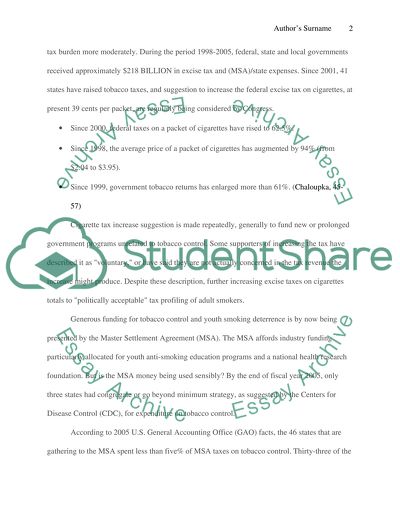Cite this document
(“Cigarette Taxes - Where Does the Money Really Go Essay”, n.d.)
Cigarette Taxes - Where Does the Money Really Go Essay. Retrieved from https://studentshare.org/miscellaneous/1519736-cigarette-taxes-where-does-the-money-really-go
Cigarette Taxes - Where Does the Money Really Go Essay. Retrieved from https://studentshare.org/miscellaneous/1519736-cigarette-taxes-where-does-the-money-really-go
(Cigarette Taxes - Where Does the Money Really Go Essay)
Cigarette Taxes - Where Does the Money Really Go Essay. https://studentshare.org/miscellaneous/1519736-cigarette-taxes-where-does-the-money-really-go.
Cigarette Taxes - Where Does the Money Really Go Essay. https://studentshare.org/miscellaneous/1519736-cigarette-taxes-where-does-the-money-really-go.
“Cigarette Taxes - Where Does the Money Really Go Essay”, n.d. https://studentshare.org/miscellaneous/1519736-cigarette-taxes-where-does-the-money-really-go.


